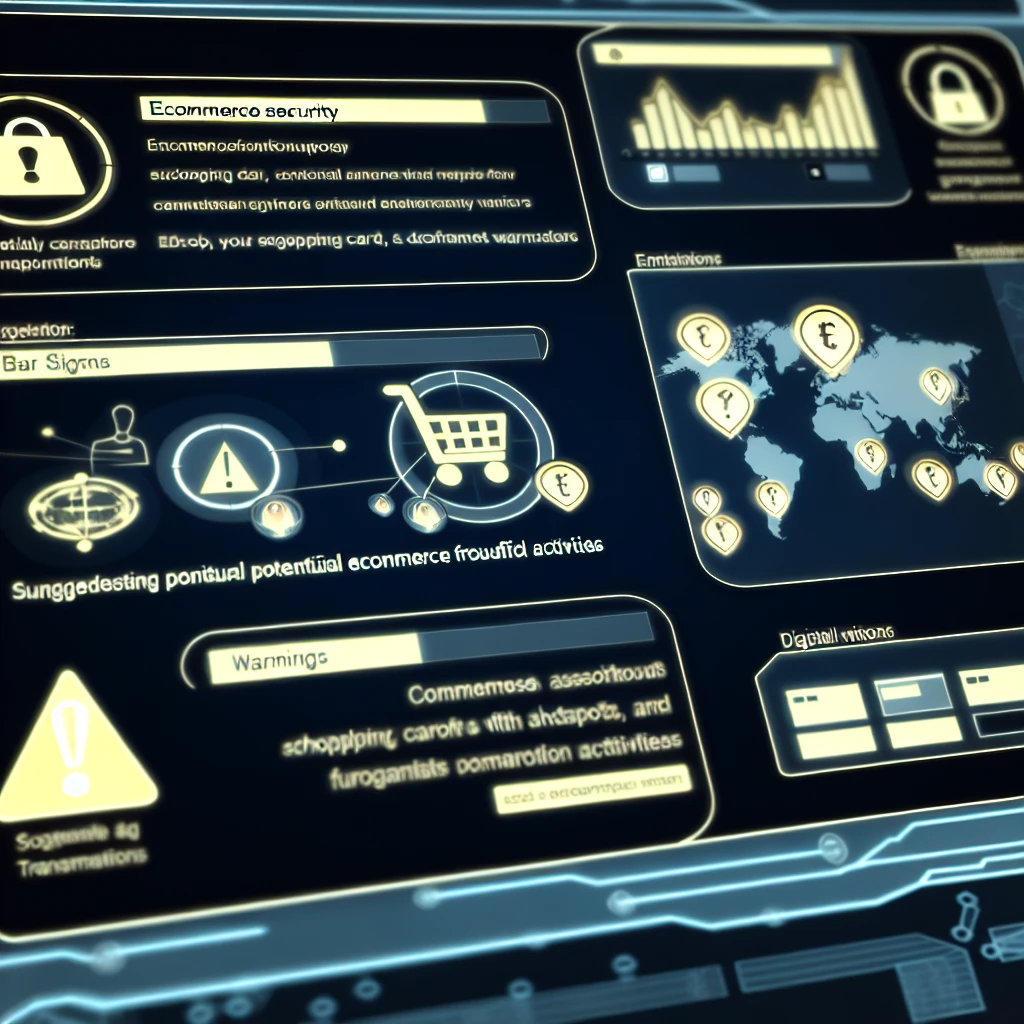Predictive Analytics in Ecommerce Accounting
Imagine a world where you could peek into the future of your ecommerce business with a crystal ball, forecasting sales trends with uncanny accuracy and managing inventory with the precision of a finely-tuned orchestra. This isn't the stuff of fantasy; it's the power of predictive analytics, supercharged by artificial intelligence (AI), at work in the realm of ecommerce accounting.
At the heart of predictive analytics lies the ability to sift through mountains of data, discern patterns, and make educated guesses about what's coming next. For ecommerce entrepreneurs, this translates into a competitive edge that's as sharp as it is data-driven. By leveraging AI, businesses can not only predict customer buying behaviors but also anticipate market shifts, adjust pricing strategies in real time, and optimize stock levels to meet demand without overstocking or stockouts.
Consider the impact of predictive analytics on inventory management. With AI algorithms, you can analyze historical sales data, factor in seasonal trends, and even incorporate external variables like economic indicators or social media buzz to forecast demand. This means you can make informed decisions about how much stock to keep on hand, which products to reorder, and when to launch promotions. It's a proactive approach that minimizes waste, maximizes sales opportunities, and keeps customers satisfied by ensuring their favorite products are always in stock.
But the benefits of predictive analytics in ecommerce accounting extend beyond inventory control. It's also a potent tool for sales forecasting. By understanding the ebb and flow of your business cycle, you can better plan for cash flow, allocate resources, and even guide your marketing efforts. Imagine being able to pinpoint the exact moment when a marketing campaign should be launched to capitalize on an upcoming trend, or knowing which products will be your next bestsellers, allowing for strategic investment in marketing and product development.
Indeed, the integration of predictive analytics into ecommerce accounting practices is revolutionizing the way businesses operate. The insights gleaned from AI-powered analysis provide a level of foresight that was once unthinkable. As ecommerce continues to grow and evolve, those who harness the predictive power of AI will find themselves at the forefront of innovation, reaping the rewards of a smarter, more responsive approach to the ever-changing landscape of online commerce.
AI-Driven Fraud Detection and Prevention
As we delve deeper into the technological advancements shaping ecommerce, the role of AI in fraud detection and prevention emerges as a critical element in safeguarding financial security. In the digital age, where transactions occur in the blink of an eye, the importance of robust fraud detection systems cannot be overstated. AI's ability to analyze vast amounts of data in real time is a game-changer, enabling businesses to identify and mitigate fraudulent activities before they can inflict financial damage.
AI-driven fraud detection systems are designed to learn and adapt, constantly evolving to recognize new fraudulent patterns as they emerge. By harnessing the power of machine learning, these systems can scrutinize transactional data, spot anomalies, and flag suspicious activities with remarkable precision. This proactive approach to fraud prevention is not just about protecting the bottom line; it's about maintaining consumer trust and ensuring a secure shopping experience for every customer.
Consider the sophistication of AI algorithms that can sift through layers of transactional data to detect irregularities that might elude human oversight. These algorithms look for inconsistencies in purchasing behavior, payment methods, and even geolocation data to identify potential fraud. For instance, an unexpected high-value transaction from a new customer in a different country might trigger a review to confirm its legitimacy. This level of scrutiny is invaluable in an era where cyber threats are becoming more complex and insidious.
Moreover, AI-driven fraud detection extends beyond mere transaction analysis. It also encompasses email and account monitoring, where AI tools can detect phishing attempts and unauthorized account access attempts, adding an extra layer of security. In ecommerce, where customer accounts often contain sensitive financial information, such vigilance is crucial.
The integration of AI in fraud detection also has a positive ripple effect on the overall customer experience. By minimizing false positives - legitimate transactions that are incorrectly flagged as fraudulent - AI ensures a smoother, more seamless shopping experience. Customers are less likely to encounter unnecessary hurdles during checkout, leading to higher satisfaction and loyalty.
Ultimately, the deployment of AI in the fight against fraud is not just a defensive strategy; it's an offensive move towards a more secure, trustworthy, and efficient ecommerce ecosystem. As we look to the future, the continued refinement and integration of AI in fraud detection will be paramount in protecting both businesses and consumers from the ever-evolving threats that lurk in the digital marketplace.
The Future of Accounting with AI and Machine Learning
Peering into the crystal ball of ecommerce, the future of accounting is not just about crunching numbers; it's about intelligent systems that learn, adapt, and predict. As AI and machine learning technologies advance, they promise to revolutionize the way we handle ecommerce accounting, transforming it from a reactive to a proactive discipline.
Imagine a world where your accounting software doesn't just record transactions but anticipates them. AI's predictive capabilities could forecast cash flow trends, alerting businesses to potential shortfalls or surpluses. This foresight would enable more strategic financial planning, ensuring that ecommerce businesses remain agile and resilient in the face of market volatility.
Machine learning algorithms are poised to become the new workhorses of financial analysis. They'll tirelessly comb through data, identifying patterns and insights that could inform smarter decision-making. For example, by analyzing sales data, AI could suggest optimal pricing strategies or highlight the most profitable product lines, helping businesses to focus their efforts where it matters most.
Furthermore, the integration of AI into accounting systems could vastly improve efficiency. Tedious tasks such as invoice processing, expense categorization, and even tax preparation could be automated, freeing up human accountants to focus on more strategic initiatives. The potential for error reduction is also significant, as AI systems are less prone to the oversights that can occur with manual processing.
But the benefits of AI in accounting extend beyond mere number crunching. The technology could also enhance regulatory compliance, using machine learning to keep abreast of changing tax laws and financial regulations. This would be a boon for ecommerce businesses that operate across multiple jurisdictions, where the complexity of compliance can be a significant burden.
In the end, the future of accounting with AI and machine learning is not about replacing human accountants but augmenting their capabilities. These technologies will provide the tools to navigate an increasingly complex financial landscape with greater precision and insight. As ecommerce continues to grow and evolve, so too will the role of AI in ensuring that the financial foundations of these businesses are as robust and forward-thinking as the marketplaces they operate in.







